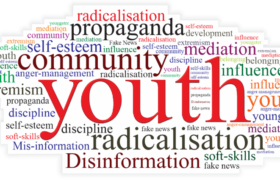AMNA NAUREEN
Gender inequality is a critical issue that is hindering the socio-economic progress of Khyber Pakhtunkhwa (KP) province in Pakistan. It is a social evil that not only affects women’s growth and development but also undermines the overall progress of the region. Despite the government’s efforts to promote gender equality, this problem persists, and women continue to face various forms of discrimination and oppression. This blog post will discuss the causes of gender inequality in KP and suggest ways to remedy this issue.
One of the primary reasons for gender inequality in KP is the patriarchal mindset prevalent in the society. The conservative cultural norms and values dictate that women should stay at home and not participate in public life. This mindset perpetuates gender discrimination and limits women’s access to education, healthcare, and job opportunities. Another factor contributing to gender inequality is the lack of awareness and education. Women in KP are often illiterate and rely on men to make decisions on their behalf. This lack of education and knowledge leaves them vulnerable to exploitation and abuse.
Gender-based violence is another significant issue that contributes to gender inequality in KP. Women are subjected to physical, emotional, and psychological abuse, and the perpetrators often go unpunished. This violence not only harms women’s physical and mental health but also limits their mobility and access to public spaces.
The gender pay gap is another manifestation of gender inequality in KP. Women are often paid less than men for the same job, and they have limited opportunities for career growth. This wage gap perpetuates the existing power dynamics and reinforces the idea that women are inferior to men.
To remedy gender inequality in KP, there needs to be a concerted effort to change the prevailing cultural norms and values. The government needs to invest in education and awareness campaigns that promote gender equality and empower women. Women should be encouraged to participate in the public sphere and be given equal opportunities for education, healthcare, and employment. The government should also enforce strict laws to protect women from gender-based violence and ensure that perpetrators are punished.
Furthermore, there needs to be a focus on ensuring that women are paid equally to men for the same job. The government should encourage companies to adopt fair pay policies and penalize those that discriminate against women. This will not only empower women but also contribute to economic growth and development.
In conclusion, gender inequality is a significant impediment to the socio-economic progress of KP’s women potential. It is a complex issue that requires a multi-faceted approach to address. The government, civil society, and individuals need to work together to change the cultural mindset, promote education and awareness, and enforce laws that protect women’s rights. Only then can we hope to achieve gender equality and unlock the full potential of KP’s women.




